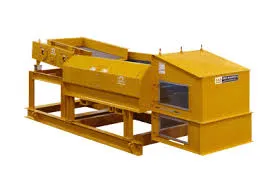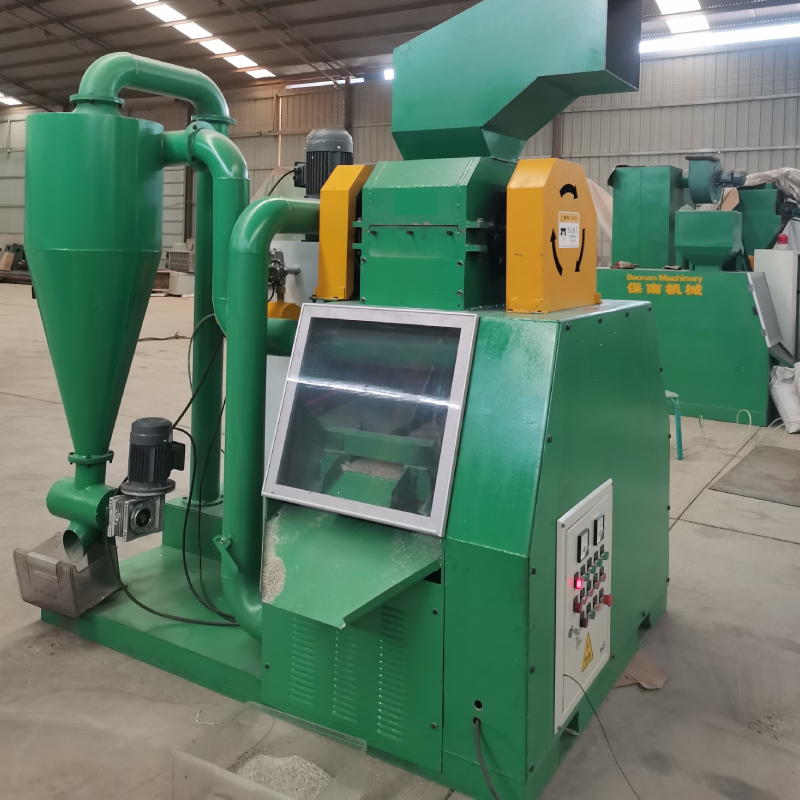When it comes to investing in industrial equipment, specifically industrial shredders, the price can be a significant deciding factor for companies. Owning an industrial shredder is crucial for businesses that need to manage large quantities of waste material, facilitate recycling processes, or even destroy sensitive information securely. Understanding the factors that influence the price of an industrial shredder can provide clearer insights and assist businesses in making informed purchasing decisions.

First and foremost, the size and capacity of an industrial shredder are primary determinants of its price. Smaller units, designed for lighter loads or compact spaces, will naturally fall on the lower end of the price spectrum. These are generally suited for small to medium enterprises or operations with minimal shredding needs. In contrast, larger shredders, which are capable of processing hundreds of tons of waste material per hour, are a more considerable investment due to their complex design and operational capacity. These machines are typically found in large-scale facilities or industries such as automotive recycling, construction, and heavy manufacturing.
Material types that the shredder can process also have an impact on pricing. Shredders designed to handle specific materials, such as metal, tires, or electronic waste, tend to have specialized cutting tools and robust construction, increasing their cost. A shredder that can handle a variety of materials with interchangeable parts can be more costly but offers greater versatility, potentially reducing the need for multiple machines.

Technology integration plays a pivotal role in the pricing of modern industrial shredders. Advanced features, such as state-of-the-art control systems, automated feeding mechanisms, energy-efficient motors, and smart sensors for monitoring performance, can all contribute to a higher price. However, investing in technology can enhance operational efficiency, reduce downtime, and provide long-term savings.
Another vital aspect to consider is the brand reputation and warranty offered. Established brands with a track record of reliability, customer service, and high-quality machinery may price their equipment higher. Their machines often come with comprehensive warranties, guaranteeing performance and providing peace of mind. Warranties can vary widely in terms of coverage and duration, impacting the initial cost but potentially saving money in future repairs.
industrial shredder price
Location and logistics also affect industrial shredder prices. Importing a shredder from overseas can lead to additional costs related to shipping, taxes, and import duties. It's important to factor these considerations into the overall expenditure. Domestic purchases may offer logistical simplicity and easier access to support and parts.
The condition of the shredder cannot be ignored. Purchasing a used or refurbished machine can significantly reduce costs. However, these options often come with risks, such as the lack of a comprehensive warranty or the potential for hidden operational issues. It's crucial to have any used machine thoroughly inspected and verified.
When it comes to choosing the right shredder at an optimal price, companies should not overlook maintenance and operational costs. Higher-priced models may offer lower maintenance requirements, less energy consumption, and longer operational lifespans, which can result in cost-effective performance over time. It's important for decision-makers to understand their long-term operational goals and calculate the total cost of ownership.
For businesses serious about making a purchase, consulting with industry experts or engineers is advisable. These professionals can offer tailored advice, taking into consideration specific needs, budget constraints, and organizational goals. It's beneficial to assess case studies, or if possible, visit sites where similar shredders are in operation to acquire firsthand insights into performance and reliability.
In conclusion, while the initial price of an industrial shredder is undoubtedly a crucial consideration, it is vital to evaluate all aspects that contribute to long-term value. This extends from the machine's efficiency and energy consumption to its maintenance and versatility. Adopting a comprehensive approach in evaluating industrial shredder costs can lead to more strategic investment decisions that align with business priorities and environmental responsibilities.


